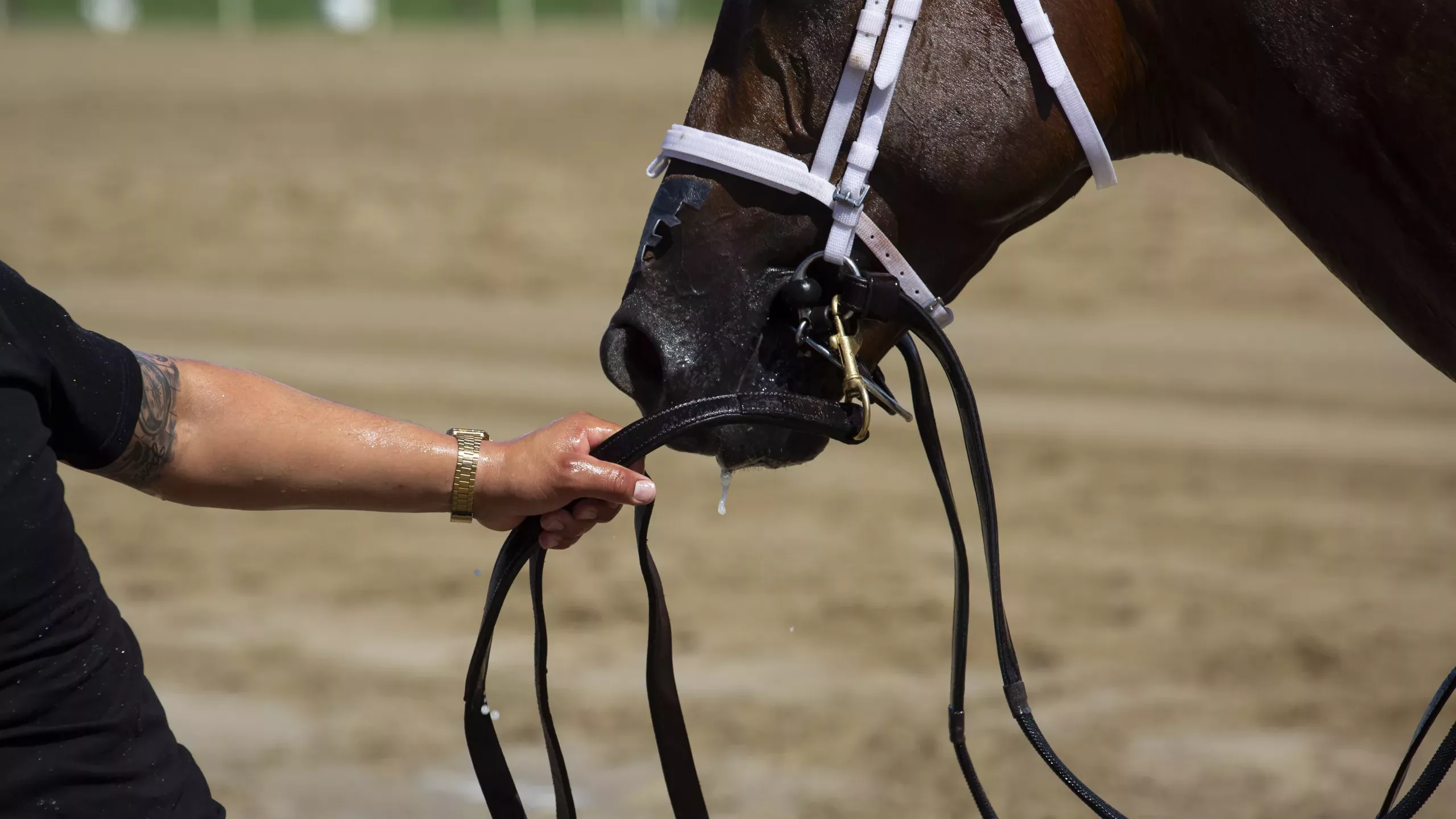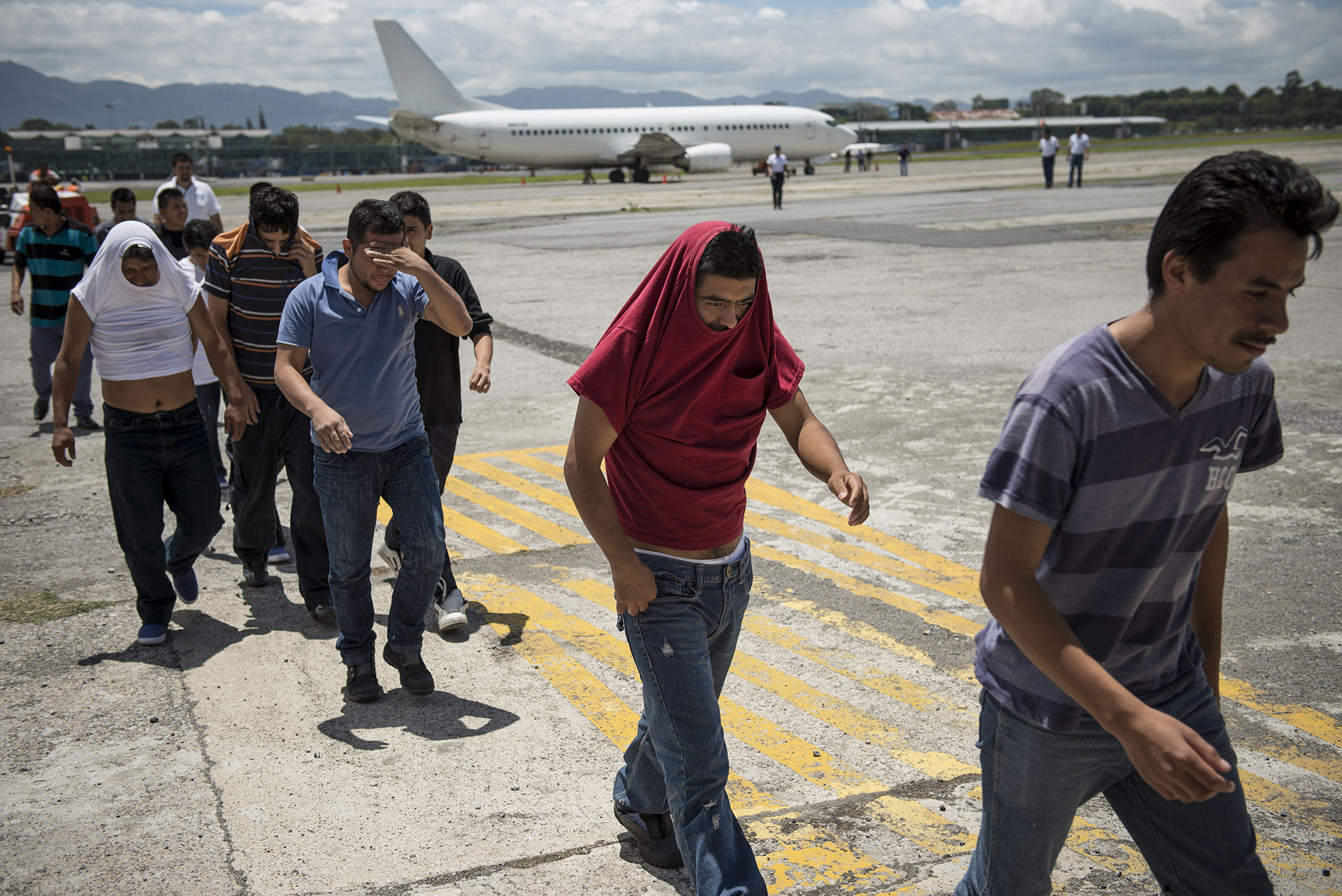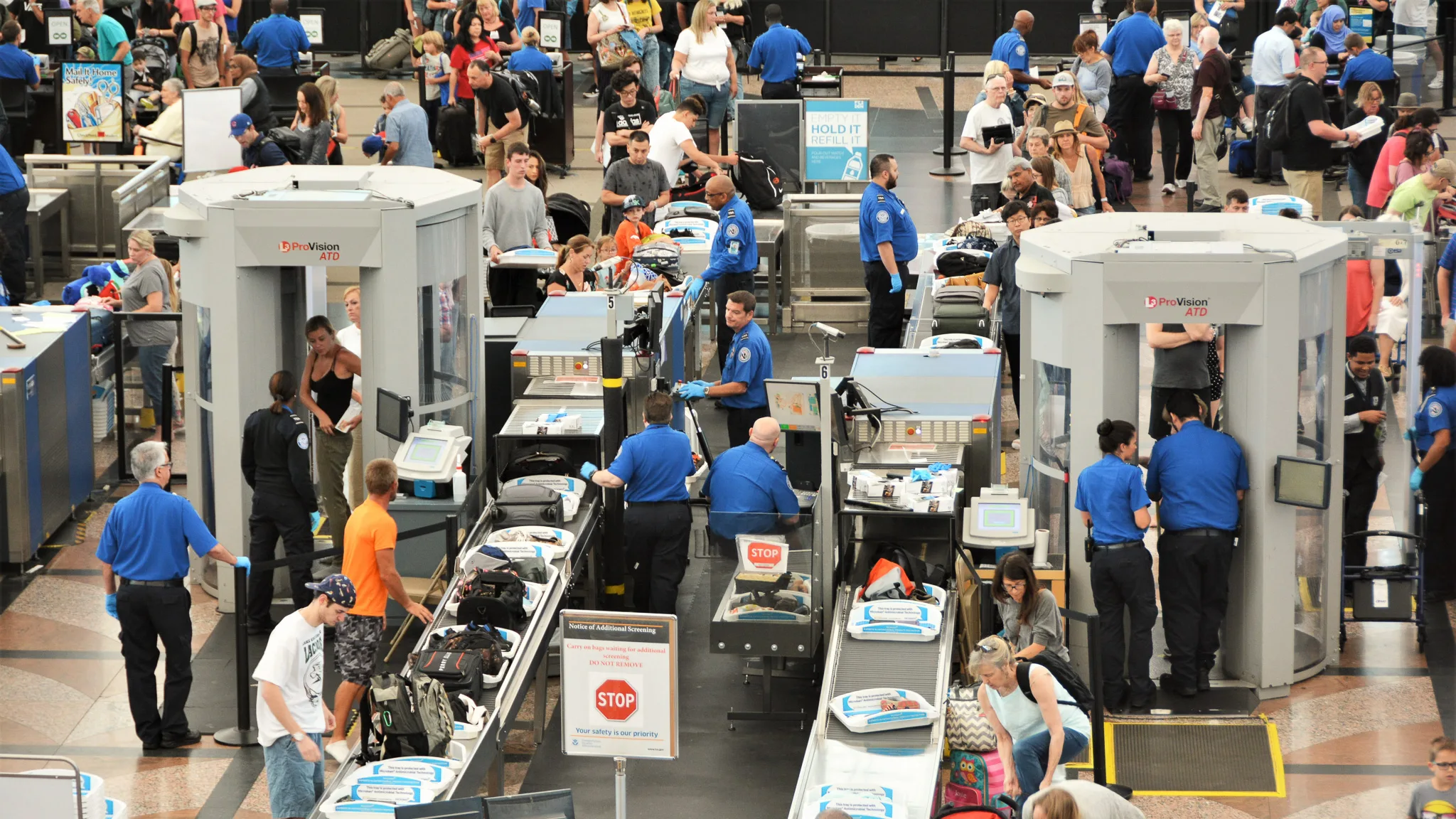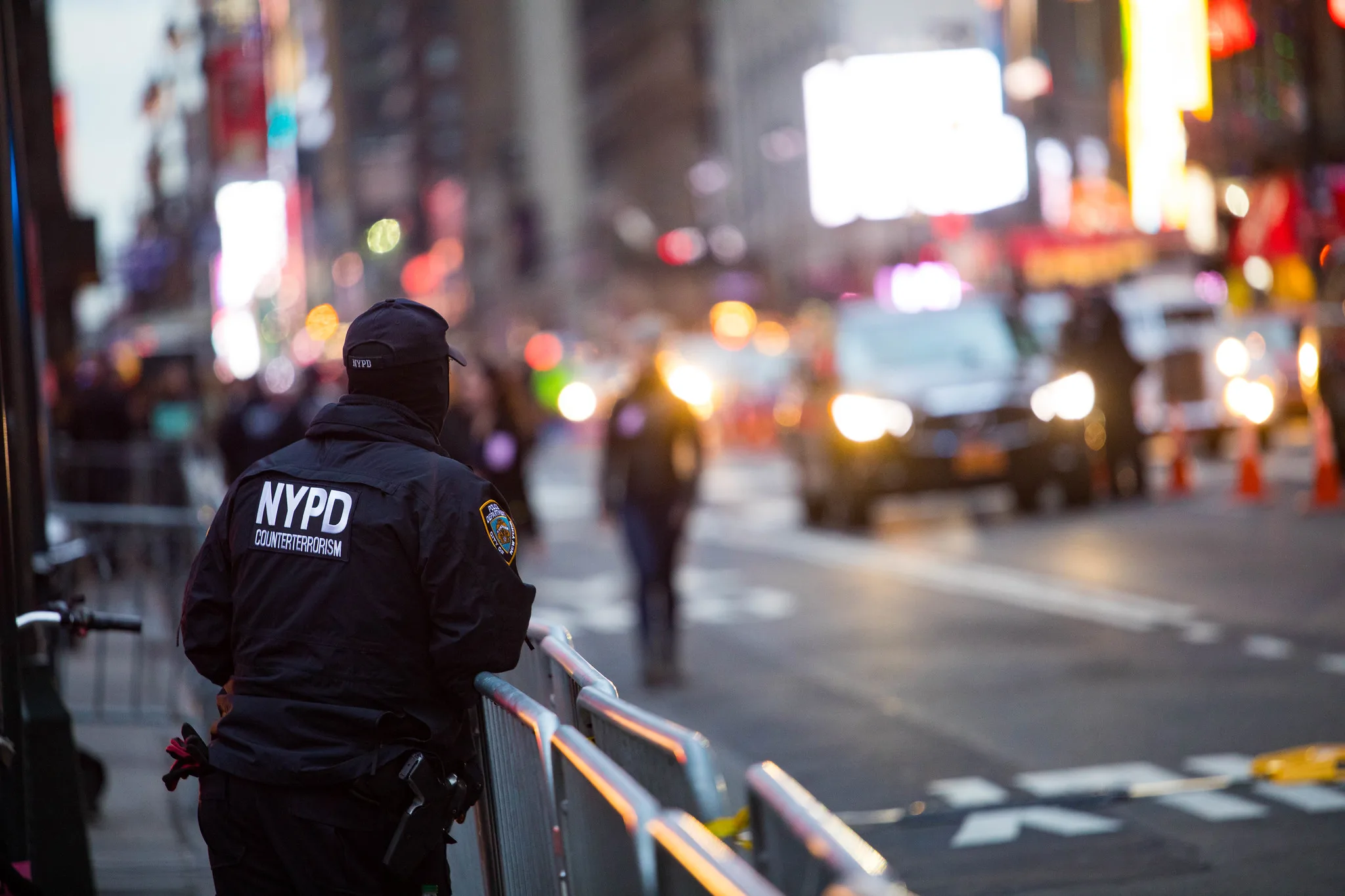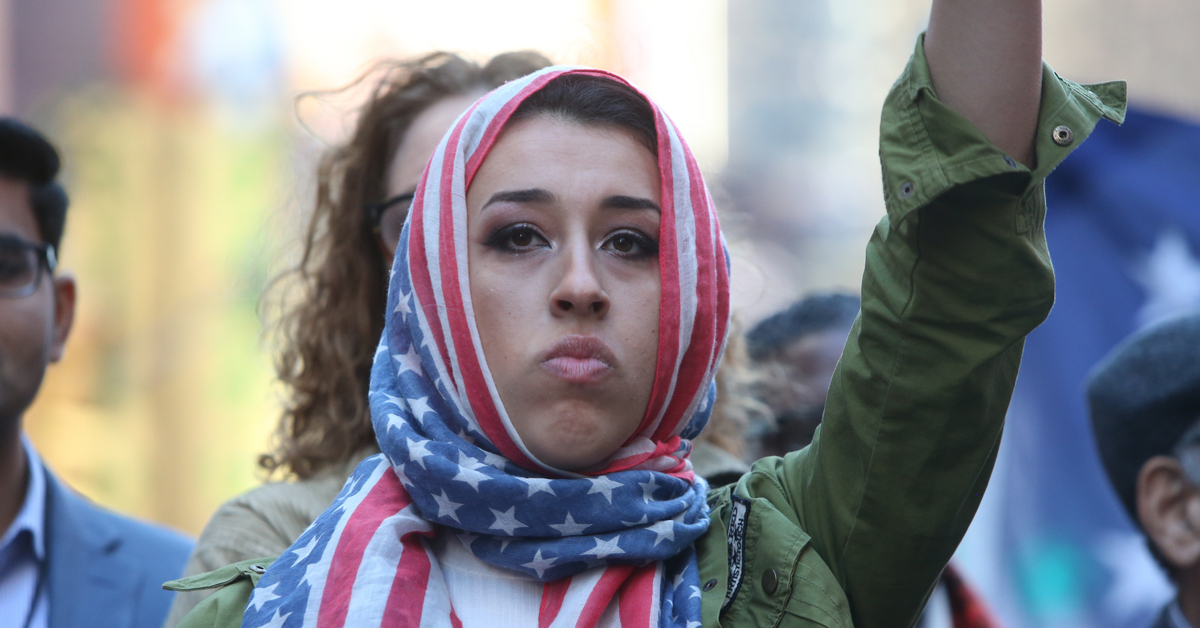In the horse barns surrounding New York’s storied Belmont racetrack, where elite race horses fight for first place and spectators wager millions each season, the day starts at 5 a.m. for workers like Aguilar. He’s tasked with caring for those thoroughbreds, and he lives onsite along with nearly 1,000 other workers in a complex built by and for the industry. It contains dormitories, a food pantry, a child care center, and its own church.
Before the sun rises, he walks to the barns to ready the 1,000-pound horses in his care for exercises. After their workouts, he’ll lead the horses on cool-down walks and prepare ice baths for their muscles. On weekends the workday can stretch longer if he helps with race days, which can feature more than a dozen high-stakes races with multi-million dollar purses. This morning routine has occupied him 6-7 days per week, all year long, for the past two decades. He makes around $15 per hour with no paid time off.
The man, who chose to go by his last name Aguilar because he fears retaliation for speaking out, said he initially moved to New York when a friend told him horse racing would pay more than the painting and yard work jobs he had before. Despite a fear of horses, he took the leap and moved to Queens, hoping to earn more money to send back to his family in Mexico. “One wants to give their children the best,” he said.
But for years, Aguilar said the trainers who have employed him have failed to pay him all of what he’s owed, and a Documented investigation found that he’s far from alone. In an analysis of data obtained through a lawsuit with the New York Department of Labor, Documented found evidence that the state’s relatively small horse racing industry faces an outsized crisis of stolen wages.
Also Read: NYS Department of Labor Fails to Recover $79 Million in Stolen Wages
For the largely immigrant workforce, speaking out has carried risks, and attempts by the niche industry to get outside help have stalled. Some employers have been fined and penalized, but regulators have harsher tools at their disposal that have not been used. Some trainers are repeat offenders.
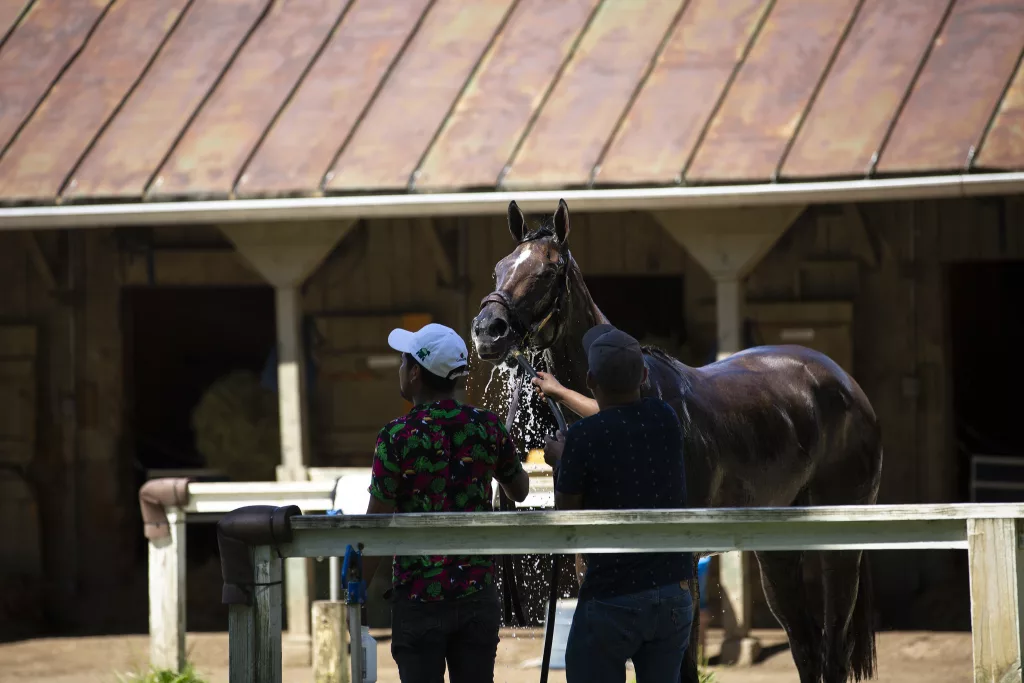
“If we stay quiet, nothing is ever going to happen. Slowly people need to wake up and not let themselves be taken advantage of,” Aguilar said. Although he’s at the point of retiring from the industry soon, he said he keeps fighting so that others who are just joining can “have a good job, so that they can be respected and their work valued.”
Workers owed more than $4.4 million
A Documented analysis of this trove of wage theft data, dating from 2022 back to 2008, found that more than 1,800 workers in horse racing were victims of wage theft, in a workforce with just a few thousand workers. Those workers were owed a total of more than $4.4 million in back wages and penalties by more than 87 trainers, a significant portion of the 300 or so trainers that operate out of New York’s tracks and make much of their earnings through shares of race purses when their horses perform well.
Dozens of cases amounted to a few thousand dollars of missing wages per worker, but others were more significant. Trainer Chad C. Brown was ordered to pay more than $1.4 million to 236 workers in 2019, with two workers owed more than $20,000 each. Steve Asmussen was ordered to pay $563,000 to 170 workers in 2020, with one worker owed more than $44,000. Both trainers did not respond to multiple requests for comment.
These are significant sums for workers, employees say, but the back wages can represent a relatively small amount for the trainers. Trainers are paid a percentage of the total purse awarded to the owner if the horse places, typically about 8-9%, and often make other income from boarding and breeding horses. Annual revenues from race purses alone can be in the millions for elite trainers.
Even when a trainer is ordered to pay wages after an investigation — which often is prompted after workers send a tip to the Department of Labor — workers may never end up receiving them. More than 18% of the wage theft cases found by Documented are listed as partially paid with some dating back to 2008. Workers can be hard to track down, and in other cases, trainers go bankrupt and are unable to pay.
While advocates have long spoken up about other issues faced by the “backstretch” workforce in the horse racing industry, like crowded housing units at the track, Documented’s data analysis reveals a larger industry-wide pattern of wage violations that was previously unreported.
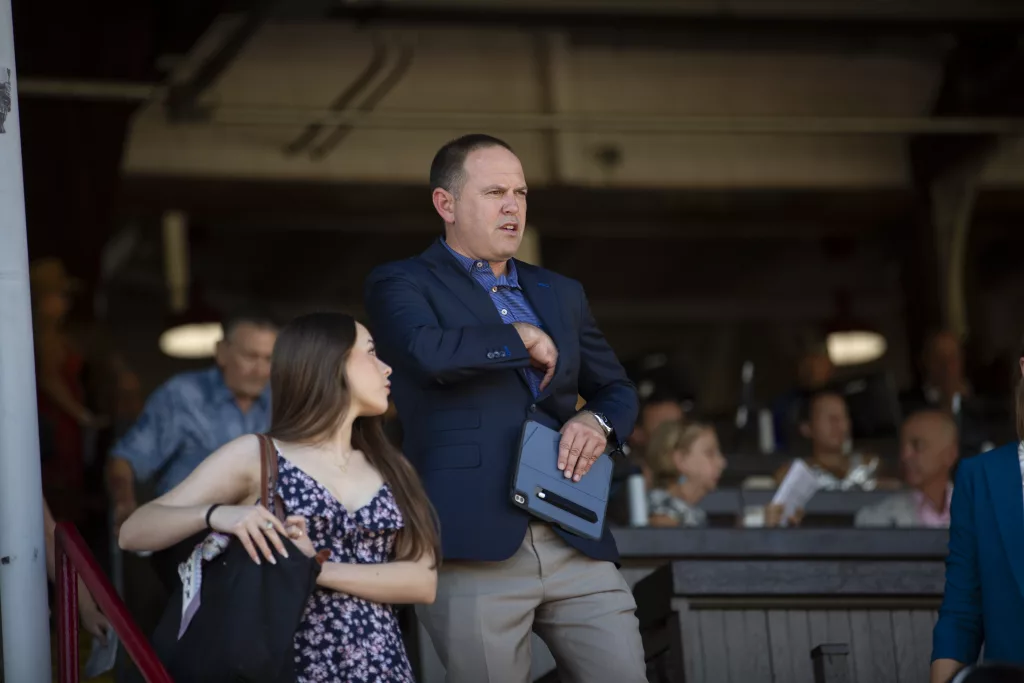
Joe Applebaum, president of a group that represents horse trainers and owners called the New York Thoroughbred Horsemen’s Association, characterized the wage theft cases as mostly a problem of the past that the industry has taken steps to fix. He said his group has launched educational campaigns for trainers to ensure they’re complying with the law.
“There might be a high number of cases, but it doesn’t represent a large percentage of the payroll,” he said. “I want everyone to be paid appropriately. But I don’t see it as systemic.”
Court documents from several wage theft cases reveal myriad ways that workers have been shortchanged. In one case, investigators said that trainer George Weaver’s management would regularly direct workers to sign falsified and inaccurate timesheets. Sixty-hour weeks were allegedly paid as 45-hour ones. Overtime was either miscalculated or not paid at all. Workers were asked to do laundry, file horseshoes, and cut grass, but were not paid by the hour for it, investigators said.
In September 2020, Weaver was ordered to pay more than $440,000 in back wages and violations to 115 workers. Several workers were found to be owed more than $7,000.
Documents from the Department of Labor outline similar wage theft tactics at other stables in New York. Though Aguilar did not work for Weaver, he said he worked for several other trainers who were investigated and ordered to pay back wages, and also described some similar tactics.
“The checks were always missing overtime,” he said. “We complained and complained and the assistant would say they’re going to fix it, but nothing ever happened.”
When workers complained, Aguilar said trainers were often unfazed and told them they would have no trouble finding other workers to replace them. In very rare cases, Aguilar said, workers he knew who spoke out were threatened with deportation.
The New York Racing Association, a non-profit, operates all three of New York’s racing tracks — Saratoga, the Aqueduct, and Belmont — and also builds and maintains housing for its backstretch workers. In a statement, NYRA’s vice president of communications, Patrick McKenna, said the organization expects all trainers to comply with labor laws.
“Trainers based at NYRA tracks have worked to address issues when they have arisen and have implemented policies and procedures to ensure that all workers are treated fairly and paid according to the letter of the law,” he said.
The drawbacks of H-2B visas
Hundreds of immigrant workers are placed at the tracks each year under the government’s H-2B guest worker program, which allows employers to petition for temporary visas on the basis that they cannot successfully recruit American workers for their job openings. To be granted the visas, horse trainers and other employers are held to a number of rules. They must show that they’ve tried but failed to recruit American workers, commit to paying a posted wage, and cover the cost of the worker’s travel to the U.S. and any associated costs with the visa process.
Research shows workers who arrive through the H-2B visa program can be more likely than native-born workers to experience wage theft and other workplace issues, and often have less recourse to fix them because of their immigration status.
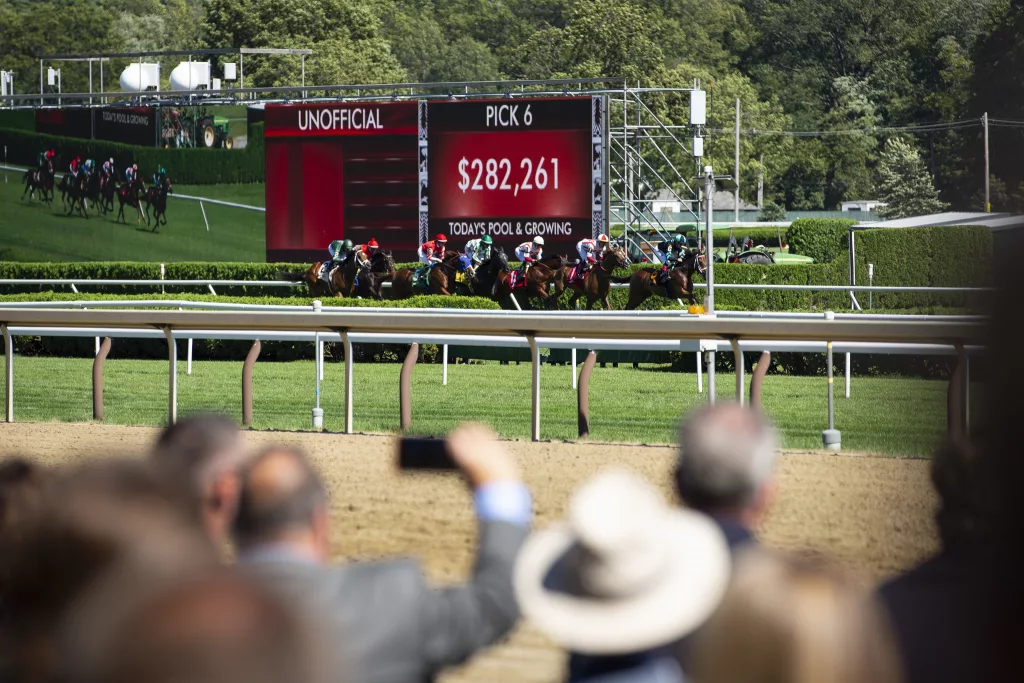
Cindy Hahamovitch, a professor of history at the University of Georgia and a scholar on the H-2B program, said guest workers are only allowed to be in the country for the duration of their job, and if they lose that job, they’re forced to leave.
“If you get there you might be unhappy, or not get paid what you are promised or the housing might be terrible,” Hahamovitch said. “But as soon as you go to a lawyer, and someone rats on you, now you’re on a plane.”
Those unkept promises are just what many workers faced when they arrived at at least two different New York stables, according to Department of Labor records.
In 2020, George Weaver was ordered to pay $175,099 in H-2B back wages to 56 employees after the Department of Labor found he collected cash from workers to cover visa costs and lawyer fees, failed to pay the wages that were offered, and failed to reimburse workers for their travel to the United States. Chad C. Brown was ordered in May 2019 to pay $918,682 in H-2B back wages to 86 employees for similar violations.
Despite breaking the rules of the H-2B program, data from the program shows that both trainers continued to receive full approval for more workers. Brown was approved for 80 more workers in 2020 after his violation judgment, 38 workers in 2021, and 80 workers again in 2022. Weaver had 5 workers approved in 2021 after his violation judgment, and 15 approved in 2022.
Reining in wage theft
In response to questions about these cases, an official from the Department of Labor provided a statement saying the agency has a number of tools to hold violators of the H-2B rules accountable, including ordering back wages and penalties and a requirement to establish an H-2B compliance program. In the cases of Weaver and Brown, the official said the Department believes those measures “adequately address the violations and provide a strong incentive for the employers to comply” with the program’s rules in the future.
Also Read: Documented Launches The Wage Theft Monitor
The official noted that some employers do get temporary bans from participating in the program if investigators follow up and determine they haven’t kept promises to improve. A review of the companies currently banned from receiving H-2B workers shows 59 employers from various industries. One of them, Contessa Racing of Hoosick Falls, is a horse training operation, banned from receiving workers for five years.
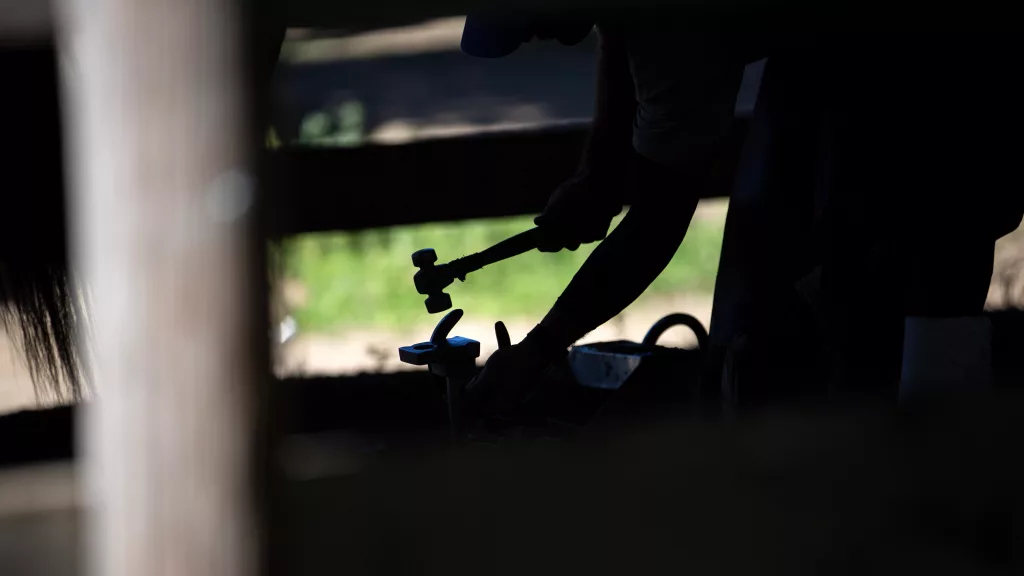
Regulators at the state level have another considerable point of leverage in disciplining trainers who flout labor laws. No trainer can enter a horse in any race without a license from the New York State Gaming Commission, which oversees all gambling in the state. The Commission can suspend or revoke licenses for a host of reasons, including committing a crime, being financially irresponsible, or being guilty of fraud. In 2020, the Commission suspended the licenses of five trainers who federal prosecutors said were part of a nationwide conspiracy to smuggle horse doping drugs into their barns.
But the Gaming Commission’s director of communications, Brad Maione, said that no trainer has ever had his or her license suspended or revoked for a wage violation. Maione declined to comment further on why wage violations have not led to a suspension or revocation.
Policymakers and regulators may face less incentive to rein in horse racing given that the industry is big business in New York. Today, $2.5 billion is wagered annually on races across the three tracks, and lawmakers see it as an economic driver for New York, which now generates more tax revenue from online sports betting than any other state. Lawmakers in Albany regularly grant support to the industry, with the latest state budget allocating a $455 million loan for development at Belmont’s facilities.
Backstretch workers at Belmont and other New York race tracks have no support from organized labor. Though some jockeys have formed unions around the country, sources said lower-paid backstretch workers like hot walkers and grooms, who operate more behind the scenes, have never successfully organized.
After some of the recent wage theft settlements, Aguilar said that a handful of trainers have taken notice and improved, but for many workers, the same issues remain. He said he may retire before he sees any form of systemic change take place in the barns at Belmont. His son in Mexico is now grown up and has a daughter of his own. If Aguilar can make enough money, he plans to return to Mexico to his family when he retires.
“My son looks for me and says, ‘Dad, come stay with me,’” he said. “It’s been so many years.”
If you think you may be owed back wages by an employer that has been investigated by the Department of Labor, you can use the agency’s lookup tool here.
Ariana Perez-Castells contributed additional reporting.
